SEO Predictions for 2022
It is interesting reading clickbait articles written by my fellow SEOs predicting the changes and trends that they expect to see over the coming year. It can be more interesting going back and reading their predictions from the previous year to see how accurate they turned out to be.
Can we do any better? Let’s find out.
Our Predictions
We can start with an easy one. SEO will be declared “dead” at least once a week. Most of these proclamations will be an attempt at clickbait, an odd one polemical, with perhaps one or two genuinely believing it.
Am I worried that I will be out of a job?
Short answer, no. Longer answer, not at all.
Google is going to continue squeezing the amount of space it gives to the organic results on its results pages. The so-called ten blue lines will appear increasingly lost among the clutter and more eye-catching results as Google looks to maximise revenue from search.
The importance of being on an increasingly competitive first page will make SEO and working with the right agency more important than ever. If you want to earn the click, then you have to ensure you are as high up the first page as possible.
The pandemic has forced many businesses to reevaluate their online strategies. Companies who are new to, or had previously chosen not to focus on online, have had to catch up very quickly. As these companies catch up, the organic results are becoming even more competitive.
Far from being dead, SEO is possibly more competitive than ever.
Apart from this increased competitiveness, how do we expect organic search to evolve in 2022?
How will Google evolve in 2022
For a considerable time now, Google has been moving in one direction, and we don’t expect to see that change this year. A results page is essentially Google saying here are ten high quality sites that we believe best answer your query. These sites should be fast, free of spam and work on your device. With the Page Experience update, often referred to as Core Web Vitals, they added the user’s experience of the page to their algorithm. They want to provide their users with the best pages possible.
If you combine this with their prioritisation of sites that demonstrate expertise, authoritativeness and trustworthiness, or E-A-T, as spelled out in their Search Quality Rater guidelines you can see clearly how Google is evolving.
SEO is no longer about quick shortcuts or tricks (if it ever was). It is wholly about creating high quality sites developed for users and not algorithms. This will mean working with developers, designers, UX specialists and content creators and utilising the strength of the team.
Just as Google is becoming better at identifying high quality sites, so are users. Users are able to look at a page of search results and determine from the titles and meta descriptions what they can expect from a site if they click on a link. When they see a poorly written, keyword-stuffed title, they are able to make an assessment of the quality of that site and behave accordingly.
Will Google incorporate bounce rates into their algorithm?
All of this you think would make it desirable for Google to start incorporating bounce rates, conversion rates, time on page and exit rates as ranking factors. With the ubiquity of Google Analytics, they have access to this data for the majority of sites.
So why not use it? Well for starters, these metrics are all easily manipulable. Bots could be used to inflate the bounce rate on a competitor site. They already have enough data to be able to determine what is a high-quality site.
With Time-on-Page, a short session could indicate the user was able to easily find the information they were after, or they could have decided after seeing the page to try another site. Analytics is not yet sophisticated enough to determine why the user exited a page, and given the many reasons someone might have, there might not ever be a way to know for certain without them actually telling you….which is unlikely to happen.
The rise of the machines….learning
Google has been experimenting with applying machine learning to the organic results. We do not know how close they are to making this work, or if they have made it work how close they are to rolling it out.
If they manage, instead of a team of search engineers determining what is or is not a ranking factor, an algorithm will constantly evolve determining what sites should rank. Will the factors they use match those that were chosen by the search engineers? Will there be visibility on how it ranks websites? Will the ranking factors chosen by an algorithm be better than those chosen by a team of humans? Would this make a change to how we optimise websites?
This is very likely several years away, at the earliest. It is part of an increasing trend of Alphabet, Google’s parent company, sharing knowledge between the different companies.
Will 2022 be the year of voice search?
The last word is saved for voice search. Will 2022 be the year of voice search? As people have been predicting for the past three years….
It is fairly safe to say that next year we will be asking if 2023 is going to be the year of voice search, as people have been predicting for the past four years. It is going to continue to grow at a steady rate, but it is nowhere close to becoming the dominant method of how people search.
This year search will continue to mature along the same path. Google will continue refining their algorithms in order to ensure they provide the best answers to your search queries. The SERP or results page will become more competitive than ever, making SEO more important.
The November 2021 Search & Digital Marketing News Round Up
November was a busy month for Google, and for the many webmasters and SEO professionals who follow every move they make.
Google started the month with a spam update at the start of the month, stating their intention is to better deal with content that doesn’t meet their guidelines.
As part of our regular work to improve results, we’ve released a spam update to our systems. This November 2021 spam update should be fully rolled out within a week. We encourage sites to follow our best practices for Search: https://t.co/jK3ArQmTqT
— Google SearchLiaison (@searchliaison) November 3, 2021
Some eagle-eyed observers suggested that the ‘Automatically generated content’ guidelines were updated on the same day, so if you’re looking for a clue on what changed and what you should stop if – horror – you are bending the rules.
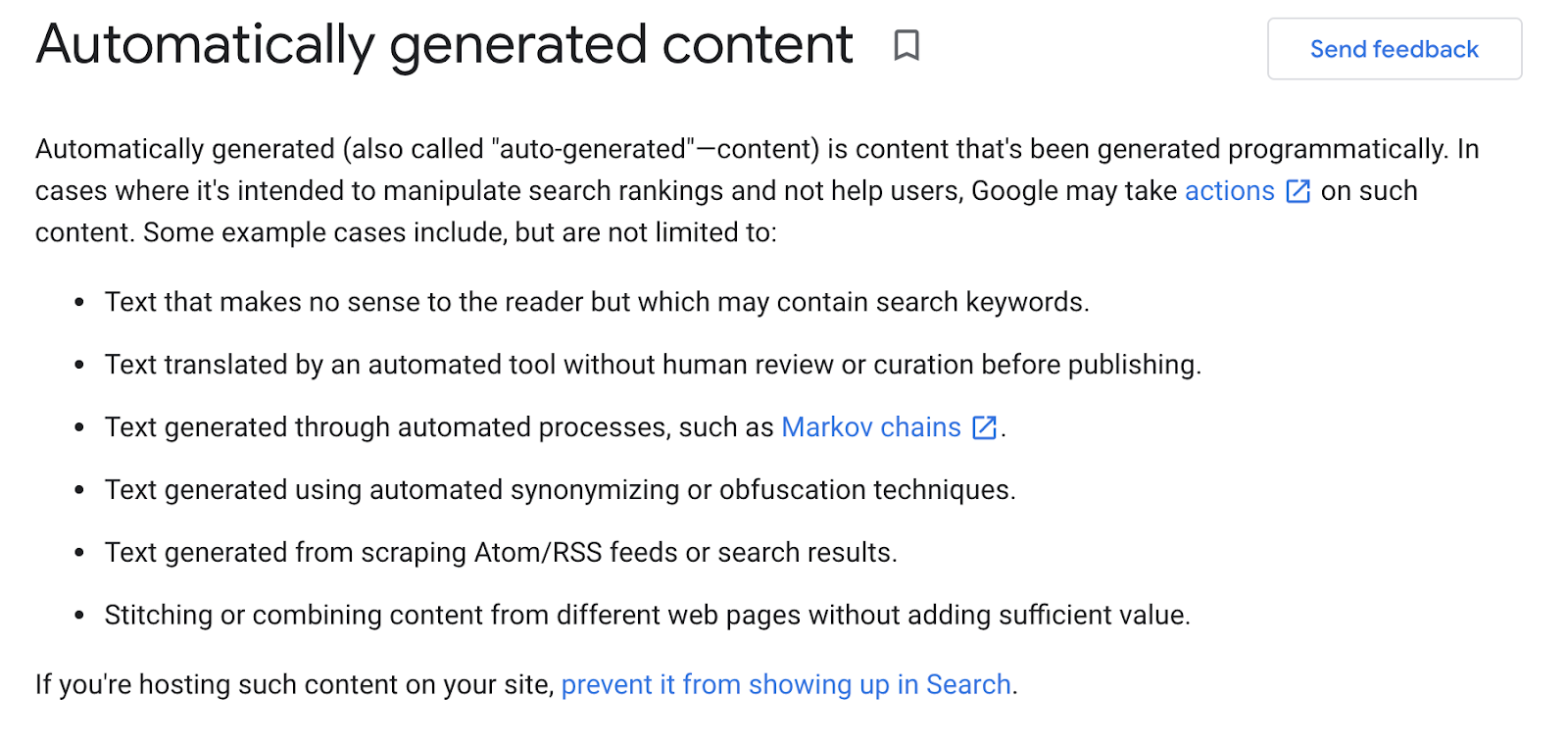
Later in the month Google commenced the roll-out of the November 2021 Core Search Algorithm update, which completed on the 30th of November. Although a major update, we have not seen a high degree of fluctuation in the organic rankings that we have come to expect with core updates.
Later today, we are releasing a broad core update, as we do several times per year. It is called the November 2021 Core Update. Our guidance about such updates is here:https://t.co/0LAL28ueDq
— Google Search Central (@googlesearchc) November 17, 2021
Desktop Page Experience will be a ranking factor
Google also announced that from February 2022 page experience on desktop sites – Core Web Vitals – will become a ranking factor, meaning the only factor that doesn’t apply to both Mobile and Desktop ranking is (somewhat obviously) mobile friendliness.
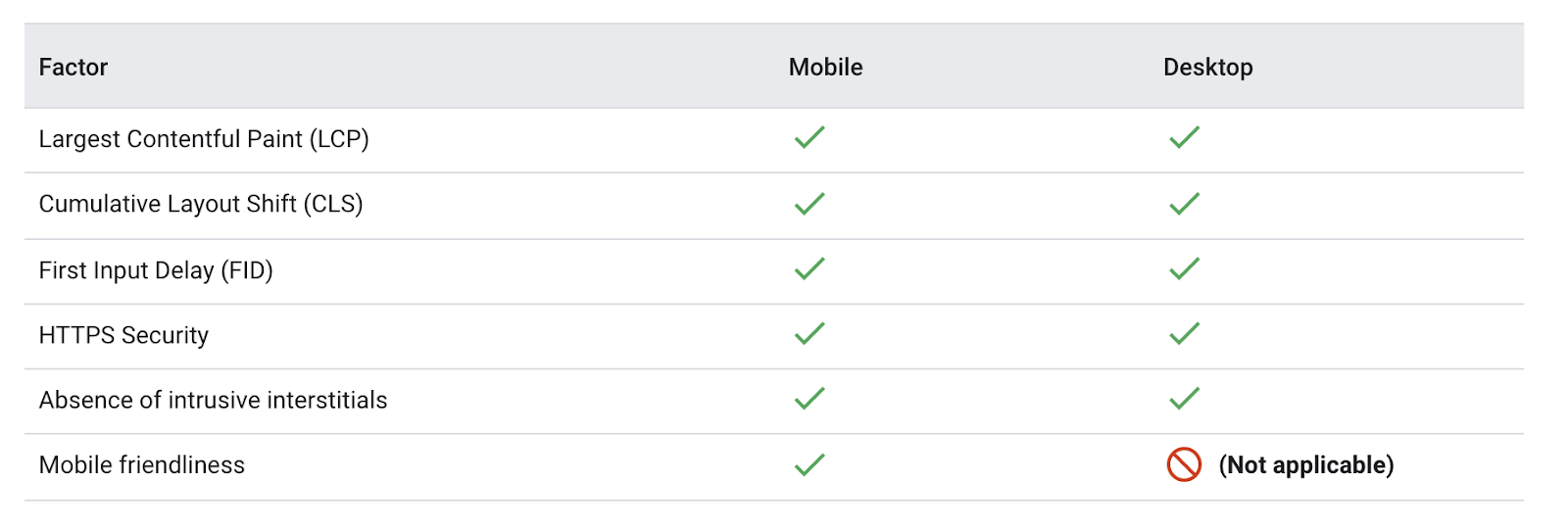
Three SEO Heads are (much) better than one
Three of Google’s most high profile members of their Search Relations team John Mueller, Gary Illyes and Martin Splitt got together to discuss the future of SEO, and it’s well worth a listen below if you have 45 minutes to spare, or a read if that’s more your thing. There’s a very interesting section on making browser-based applications accessible to search engines, and the technical design decisions that might entail during development.
Facebook Targeting Sensitive Targeting
November also saw some updates from Facebook who are making changes to detailed targeting options for advertising. From January 2022 through to March 2022 Facebook will remove Detailed Targeting options that relate to topics people may perceive as sensitive including options referencing causes, organisations or public figures that relate to health, race or ethnicity, political affiliation, religion or sexual orientation. Clearly this will make advertising targeting harder for some brands, but if you place faith in the Facebook targeting algorithms, there’s a good chance the right creative will find its way to the right people…
The May 2021 Search & Digital Marketing News Round Up
John Mueller, guru of all things Google, had a lot to say during May.
Firstly, during his latest Ask Googlebot YouTube video, Mr. Mueller advised site owners that turning off – or deleting – a sitemap won’t prevent Google from crawling URLs at a later date. John went on to say that if a site owner does delete a sitemap file, Google will continue to crawl the website – but will be less efficient in doing so. Though here at Mackerel Media, we have to ask ourselves why would anybody want to delete their site map? If a user was hoping to upload a more recent version for Google to crawl, there are more efficient way to achieve this – including multiple sitemaps being supported by Google.
Google Encourages Geographic Ranking Improvements
Next, John Meuller gave insight into Google’s ranking signals for international businesses, with clear advice on how to geo-target specific countries.
Asked what the most efficient way to target a country was, and if a local domain was required, John responded:
No, it’s not required.
In general, if you want to use geotargeting there, there are two ways to do that.
One is to use the country level top-level domain, which would dot DE for Germany in that case.
The other is to use a generic top-level domain and to use a geotargeting setting in search console.
So that could be, for example, a dot Com website or dot Net or dot Info or dot EU or whatever.
Any of those would also work and then you just set geotargeting for [country].”

There are a number of benefits to specifically geo-targeting a country – with perhaps the most important being the level of trust gained by a local user. In these scenarios, one of most important elements of an international version of a website can be the use of a geographically relevant local language. Nobody wants to find the website they’ve landed on is written in a language they do not speak!
However, translating your site into a localised language could be more difficult than first imagined. Meuller went on to say that whilst direct translation of a website into another language would not count as “duplicate content”, he did caution against using Google Translate to simply copy & paste your site into a new language.
Unsurprisingly, automatically generated translations often miss gramatical, contextual or semantic nuances in the target language – which Meuller suggested is likely to cause significant quality issues on site:
So if you use an automatic translating tool and you just translate your whole website automatically into a different language then probably we would see that as a lower quality website because often the translations are not that great.
So in these scenarios, what can be done? Meuller suggested that at a minimum, local translations really should be done by somebody who speaks the target local language.
Core Web Vitals Able To Group Similar URLs Together
With the update to Core Web Vitals scores last year, digital marketers are keen to understand as much as possible about what influences the Chrome User Experience Report data.
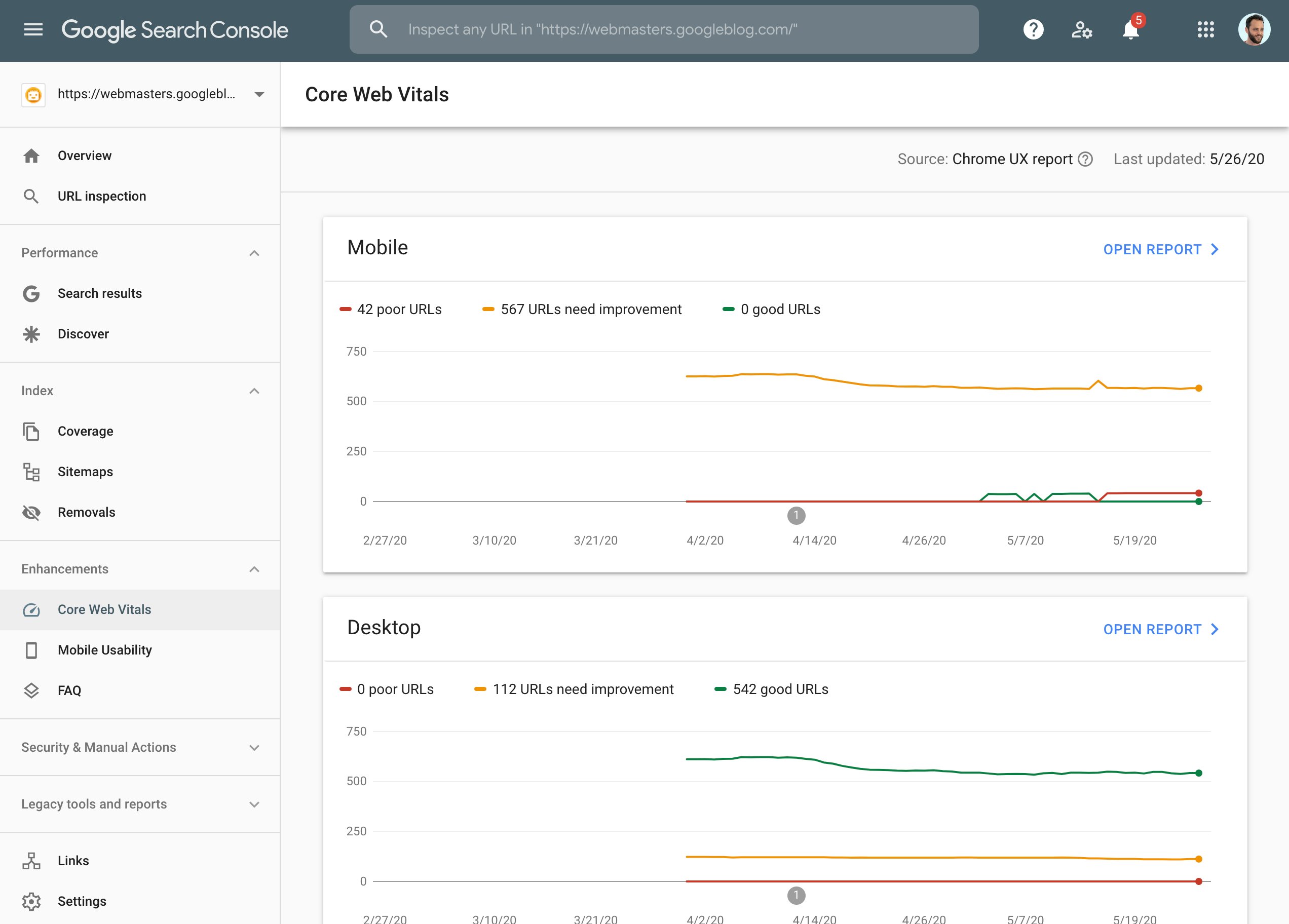
When asked how Google measures the score of pages which do not have enough views to generate a Chrome User Experience Report, Meuller suggested that Google is able to group similar pages together based on it’s understanding of the site as a whole.
“It could be something where all of your category pages are in one group and we say, well, these pages perform similarly. So if we find a new URL that is also a part of this group, we don’t have to have data for that new URL. We can rely on the data for the group overall.”
In other words, if Google comes across a new page which it has no data for – such as a blog or category page – Google’s system is able to interpret signals and group new pages together with similar pages which do have a Core Web Vitals score, assigning the overall score to all pages of a similar type.
Google Announces “Consent Mode” Updates
Following in the footsteps of Apple in taking a strong stance towards user privacy, from May 2021 Google Ads will set a new first-party cookie aimed at improving conversion attribution data with updates to Global Site Tags and GTM to set a same-site cookie on users browsers.
To support these changes, Google has announced updates to it’s Beta “Consent Mode” – a browser setting which allows advertisers to remain compliant with EU regulations. Consent Mode automatically ensures that Google tracking does not read cookies where consent is not expressly given by the user.
Google has now announced that Consent Mode will allow for conversion modeling to fill in the gaps left behind by cookies. not being accepted. This will enable Consent Mode to recover the attribution between ad-click events and conversions measured in Google Ads.
Overall, this could be an extremely useful update for digital marketers, as Google’s own data suggests this can recover more than 70% of conversion data that was lost due to cookie consent being denied by users.
Unfortunately, Consent Mode is not the standard for advertisers working in the EU yet, but gradual rollout is expected.
Facebook Braces Itself for iOS 14 Changes
If you’ve been keeping up with the news around Apple’s decision to block Third Party Cookies, then you’ll know that all Apple devices & Safari browsers will now be able prevent third-party advertisers from targeting you based on your browser history and online habits.
As part of this push towards greater user privacy, all Apps available in the AppStore will be required to sign up for the AppTrackingTransparency framework. Put simply, iOS apps which collect user data and share it with other companies will be required to gain the explicit consent of its users.
Unsurprisingly, this has left Facebook – possibly the largest collector of personal data in the world – is concerned.
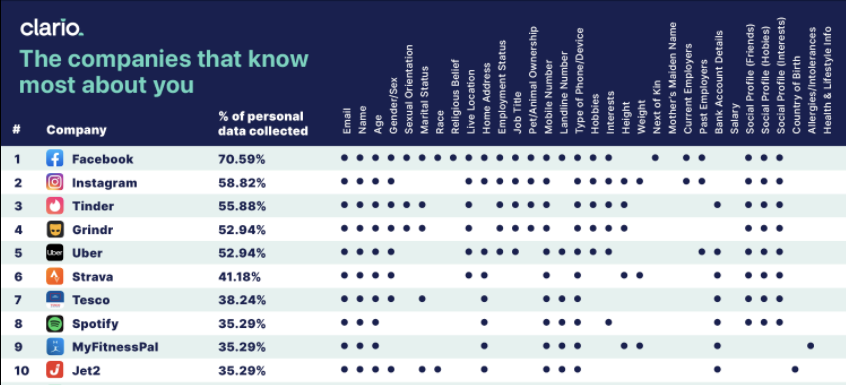
How will Facebook Data be Impacted?
In an email sent to Business Account owners, Facebook warned that with the new iOS 14 changes “may significantly affect ad creation, ad personalisation and performance reporting”.
You may at this point be asking yourself – will my data be affected?
Unfortunately – if your business is optimising, targeting users or reporting events from your website using Facebook Pixel, Conversions API or any other Facebook business tools then your ability to receive conversion data from iOS users will be impacted.
Facebook has further clarified that the AppTrackingTransparency framework will introduce Apple’s “aggregated event measure” feature – specifically limiting the number of tracked events that can be sent to eight per web domain. In addition to this, the eight events will be limited in their function and all ad sets optimising for events outside the eight auto-configured pixel events will be paused.
With these changes in mind, it may not come as a surprise that Facebook has also warned that it expects audience sizes and statistical modelling to decrease in accuracy as iOS 14 users are stripped from Facebook’s audience targeting tools.
Is there anything I can do to Prepare?
Facebook is clearly aware of the possible threat to its business model, and appears to be doing the best it can to prepare advertisers for the changes expected in early 2021.
Firstly, domains where multiple businesses or personal ad accounts own Pixels, accounts must complete a domain verification to continue to use Pixels across all accounts. This can be done in Business Manager, and Mackerel Media is ensuring that all clients are up to date with the current domain verification recommendations.

Next, Facebook is urging users to review and optimise Pixel Events in order to remain compliant with Apple’s “aggregated event measure” feature. If you have admin access to your Business Manager, you can edit which events are available for each of the pixels on your domain.
Finally, make sure you check your attribution – iOS 14 updates will only support a 7-day click attribution window. If your campaigns have an attribution window of longer than 7-days, Facebook will automatically reset to a 7-Day Click window. So make sure you are prepared for this, otherwise you might get a nasty surprise next time you check!
These changes to Facebook’s Data Tracking and Attribution are complex. If you’d like to have a chat with us about how to prepare, please drop us a line via hello@mackerelmedia.co.uk.
The Complete 2020 Search & Digital Marketing Round Up
2020 is almost over, and what a year it has been!
Aside from the obvious, there have been a whole load of interesting (and perhaps concerning!) developments in the world of digital marketing. We’ve covered many of the most important updates in our monthly digital marketing roundups, but with 2020 nearly behind us it seems a good time to look back at the biggest stories of the past year!
Google Algorithm Updates Rock SEO
Right from the off, Google made it clear that it was going to make serious updates to it’s behind-the-scenes algorithms. Back in Jan 2020, Google rolled out the first of more than 10 confirmed updates; the first of these had impacts across the SEO world, with Mordy Oberstein from RankRanger suggesting that this first update impacted what he called “Your Money, Your Life” signals – in other words, websites which weren’t able to make visitors feel safe about spending their money were most heavily impacted.
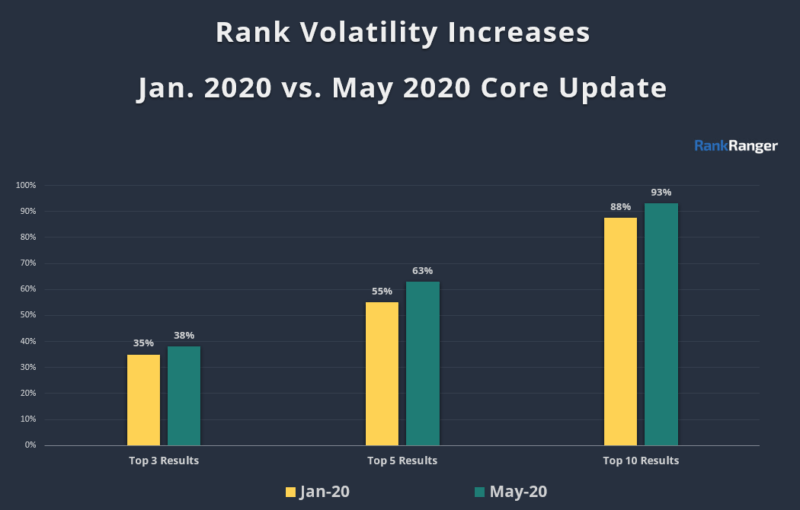
Next, May 2020 saw a huge core update – again, RankRanger called it an “absolute monster”, impacting almost all online sectors including Retail, Travel and Health. Reports at the time suggested that Google’s May 2020 update was a broad scope update, with no specific focus on what Google was trying to achieve with it’s algorithm changes, but evidence suggested that 93% off all Top 10 results were impacted in one way or another!
Finally, Google released it’s last core update of the year – another broad scope update, this was officially announced by Google on December 3rd:
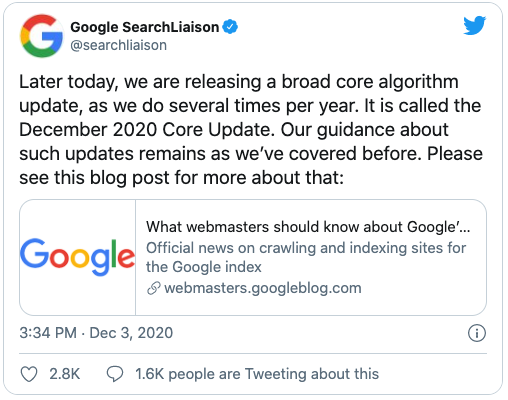
Investigation by industry leader SearchMetrocs showed clear shifts in rankings for areas related to E-A-T (Expertise-Authoritativeness-Trustworthiness) and quality unique content such music, health, finance, news, and ecommerce. Some individuals claimed to have lost over 40% of their Google organic traffic, while others did well from this update. Indeed, a number of Mackerel media’s own clients saw large improvements in Page ranking for key search terms.
iOS Blocks 3rd party Cookies
With iOS 14 being released in September, all Apple devices & Safari browsers are now able to block all cookies from third-party websites, and prevent third-party advertisers from targeting you based on your browser history and online habits. Apple has argued that third-party cookies are mainly used for cross-site tracking and advertising purposes, but they also allow website owners to provide additional useful services – such as live chats or social media buttons.
We’ve already seen some interesting cookie workarounds coming from the tech giant in the past month, with its recently announced “Consent Mode” being far less reliant on the deployment of cookies for tracking.
The impact of this discovery is that data for Safari devices may not be as accurate as pre-ITP times. However, as with all data interpretation, digital marketers need to be aware of the bigger picture – how are the trends on other devices shifting, and what can we learn from the data that IS available to us?
In addition to this huge shake-up in cookie-tracking, rumours have persisted that Apple is preparing to launch its own Search Engine to rival Google – whom it currently receives a reported $12bn from to be the ‘default’ search engine for both Safari iOS and Siri searches.
Google Analytics 4 Rolls Out
In October, Google revealed a new version of Google Analytics. The exciting rollout completely changes how data is captured using “Streams”, tracked and integrated with other Google tools such as GTM or Search Console. As with all of Google’s current updates, Machine Learning & AI are at the heart of the new Google Analytics 4.0 – meaning that we might be able to expect even more exciting features in the future!

Google Passes on Digital Services Tax, Others Follow
Much to the annoyance of its customers, digital marketers were forced to absorb Google’s own digital services taxes in the UK from 1st November 2020 via a 2% hike. Aimed at collecting revenue from digital companies with a UK revenue of £25 million, the tax had been in the works for some time – but came as a surprise to many that Tech Giants would pass the cost on to customers.
Following the announcement of this 2% tax, many of Mackerel Media’s own clients opted to absorb the tax into their monthly budgets – essentially reducing their overall media spend without increasing budgets.
Other large digital companies have also announced they will be passing on the Digital Services tax, including Amazon who will charge an additional 2% on referral fees, fulfillment by Amazon (FBA) fees, monthly FBA storage fees and multichannel fulfillment (MCF) fees.
There has been no word yet as to whether of not Facebook will follow suit, however as of 1st January 2021 they will be charging a 6% service tax on ads sold in Malaysia, suggesting the UK’s DST may be next on their list.
Digital Media Grows in 2020
Finally, it should come as no surprise that paid search and social media spend grew faster than ever during 2020, with traditional media formats suffering thanks to the impact of COVID-19.
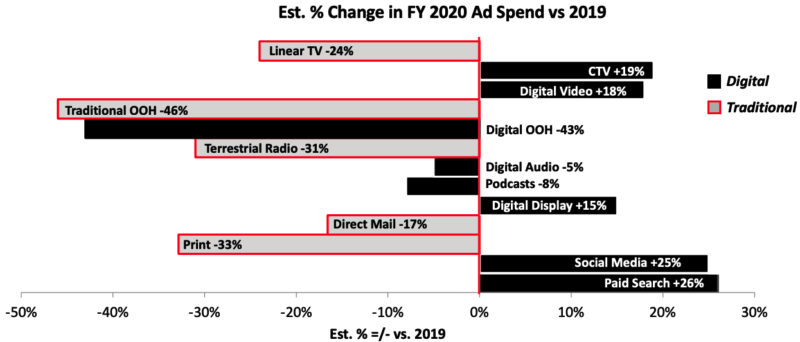 The report suggests that Paid Search channels will see an impressive 26% growth year on year from 2019, while social advertising closely follows with a 25% increase in the same period. While the report doesn’t mention specific companies, it would be safe to assume that Google and Facebook will have captured a lot of the increased digital ad growth.
The report suggests that Paid Search channels will see an impressive 26% growth year on year from 2019, while social advertising closely follows with a 25% increase in the same period. While the report doesn’t mention specific companies, it would be safe to assume that Google and Facebook will have captured a lot of the increased digital ad growth.
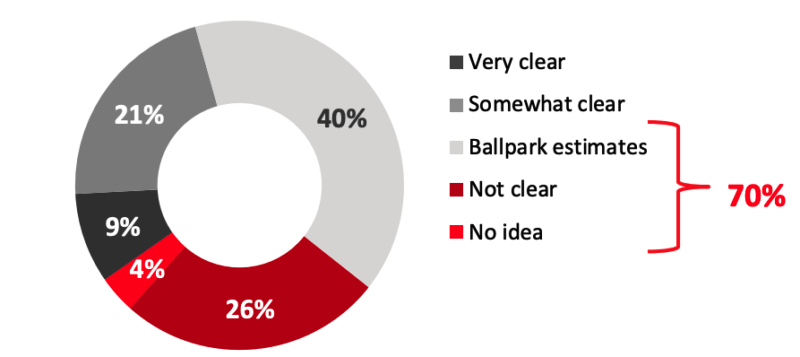
The survey also looked into expected spend levels during 2021. Unfortunately, most businesses reported they expect only a 5% growth in their budgets over 2020, with almost 70% saying they didn’t have a clear indication of what their 2021 digital budgets look like yet.
The November 2020 Search & Digital Marketing News Round Up
Roughly a year after it was first announced, Google’s new page experience tool received a confirmed launch date some time in May 2021. The new tool brings with it the ability to highlight search results that have a great page experience even going so far as to provide a “visual indicator that highlights pages in search results that have great page experience,” the company noted Tuesday. In other words, SERP users will be able to avoid pages which don’t have Google’s stamp of UX approval – be warned!

Google also began testing Snippet Results with multiple contextual links – meaning featured snippets for search terms can now include additional information from 3rd party sites. Although Google has confirmed it is still testing contextual links within Snippets, this new update has sparked criticism – in the past Google has been accused of simply scraping websites and displaying hard won content as its own, which is… totally fair TBH. With this latest Snippet update, Google is in effect creating its own content from multiple sources without giving credit to those who wrote it, which understandable is frustrating for those who have already put in the hard work..
Google Pushes Local Business Tools & Services
Offline, you may have noticed plenty of Google branded Local Business ads on television recently. No surprise then that during November, Google has been making a big push for its Local Service Ads. Google maps will now include features such as “Google Guaranteed” and “Google Screened” badges for map listings – initial results seem to show a higher CTR% for local businesses within the Map Pack. However, being guaranteed by Google doesn’t come for free – these certifications can cost up to £600 per year. Is this further evidence that Google is trying to monitise it’s currently free Google My Business services?
In another piece of good news for small businesses, Google’s new Small Business Advisors Program offers individual consulting sessions for SME’s. Currently only available in the USA, and priced at $39.99 per session, the aim of the program is to train small businesses how to become better marketers on Google, offering individual 50 minute training sessions on products such as Google Analytics and YouTube. Expect to see it rolled out across Europe soon!
Bored with Broad Match?
For some time now, using Broad match keywords in your Google Ads campaigns has been a game of chance as Google has increasingly opened up it’s keyword match criteria. Even with Broad Match Modified keywords, we’ve seen the creep of increasingly irrelevant keywords in Search Term Reports across a range of clients. However, Google is on a Broad Match Charm offensive for those who use smart Bidding; rolling out a new tool to suggest Broad Match keyword recommendations.

The tool will use smart signals such as user behaviour and historic data to suggest new recommendations for switching your current keywords to broad match versions in Google Ads. Unsurprisingly, Google’s goal here is to encourage advertisers to move towards greater automation of accounts, but you’re right to feel skeptical – especially since Google doesn’t have a great track record of identifying user intent.
XML Marks the Spot
One of the most basic aspects of website optimization, an XML sitemap acts as a roadmap of your website, highlighting to Google where your important pages are located, and how to reach them! However, site maps can be overlooked as websites grow and change. John Mu – Google’s very own “Search Advocate” – highlighted the importance of XML site maps, considering them “the minimum you should be doing for a serious website.”

Next, Google’s rival search engine DuckDuckGo hit 60 million queries per day – a possible blow for Google’s dominance, proving that competitive search engines with USP’s can claw traffic back from the search monster. With increasing demand, it might not be too long until we see SEO’s making considerations for search engines other than Google!
Social Shopping Media Updates
Instagram upped it’s shopping ante with recent interface updates designed to replace traditional notification buttons with in-app ecommerce tabs.

“The Shop tab gives you a better way to connect with brands and creators and discover products you love.” said the Company.
Clearly, Instagram’s updates offer a great opportunity for ecommerce businesses, allowing yet another way to get your products in front of targeted audiences. However, user feedback has been less than glowing with many complaining that the changes are confusing and increase the amount of time it takes to actually see or post new content.
Finally, Twitter introduces Fleets, for the moments you thought about Tweeting, but didn’t.






